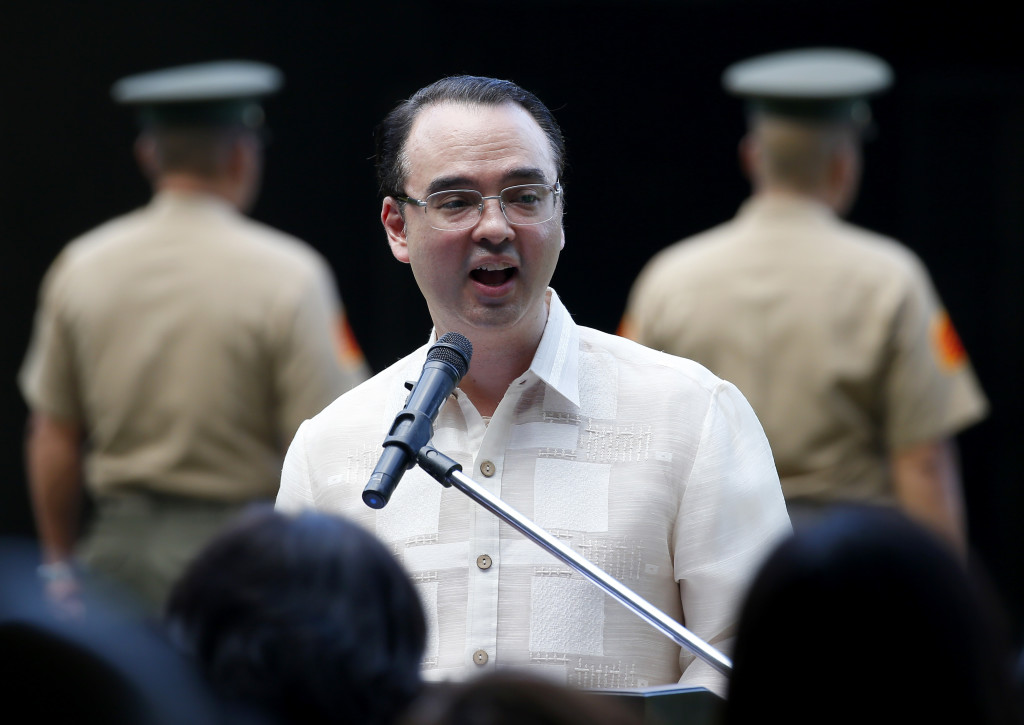Cayetano tells Washington: You are not our boss

Philippine Foreign Affairs Secretary Alan Peter Cayetano. AP FILE PHOTO
“They are not our boss.”
Foreign Secretary Alan Peter Cayetano said on Thursday that the government would not send any representative to a US congressional inquiry into extrajudicial killings under President Duterte’s antinarcotics campaign.
Cayetano said he had instructed the Philippine Embassy in Washington to instead send the US House of Representatives’ Tom Lantos Human Rights Commission a copy of the government’s report to the United Nations Human Rights Council (UNHRC) in May.
As a senator, Cayetano led a Philippine delegation to the UNHRC’s universal periodic review (UPR) session, where he denied allegations of a wave of state-sponsored summary executions in Mr. Duterte’s war on drugs.
“All I’m saying is, they are not the United Nations, they are not our boss, so they have no right to summon us. Now if they invite us as a guest, then we’ll make an assessment and decide whether to go,” Cayetano told ABS-CBN News.
Article continues after this advertisementHe said the US Congress should not be “fooled” by advocates who had a political agenda.
Article continues after this advertisement“But we’re making it very clear that we don’t report to them, and to be fair they are not asking us to report to them. It’s really how the media portrays the hearing but the hearing is for them internally,” Cayetano stressed.
According to its website, Lantos’ commission will call three witnesses on July 20: iDefend Philippines spokesperson Ellecer Carlos, Amnesty International’s Matthew Wells and Human Rights Watch’s Phelim Kine.
The witnesses will “provide policy recommendations for ensuring accountability for human rights violations” and addressing the drug problem while upholding public health and the rule of law.
Presidential spokesperson Ernesto Abella on Thursday dismissed suggestions that the US inquiry would affect diplomatic ties between Manila and Washington.
“Our relationships are based on other things rather than these temporal matters,” Abella told reporters.
“We respect the views of the commission and we greatly value the support of the United States that they have given to us and continue to give our country as we address our important economic and social development objectives,” Abella said.
He said the issues in the commission hearing “must be discussed in the context of the scope of the challenge that we face and the actions that we are taking to address it.”